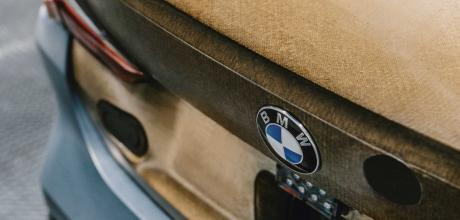BMW invests in natural fibres
BMW is invested in a future of high-performance composites made from natural materials – could your next car contain plant fibres?
BMW Group is deepening its involvement in the field of sustainable manufacturing of vehicle components made from natural materials. BMW i Ventures, BMW's venture capital firm, has announced that it is investing in Swiss company, Bcomp, the leading manufacturer of high-performance composites made from natural fibres. The move follows the two firms working together on BMW M's M4 GT4 racing car. Further collaborations are muted with the aim of using a higher proportion of renewable raw materials for components in future BMW vehicles.
Bcomp’s cutting-edge solutions were first used by BMW M in Formula E during 2019. The flax cooling shaft on the iFE.20 made it the first BMW racing car with parts constructed from – as odd as it sounds – renewable plant fibres. Bcomp-developed 'powerRibs' and 'ampliTex' reinforcement solutions have also been used in DTM touring cars as a substitute for carbon fibre-reinforced plastic (CFRP) components. This technology, tested on the track, will find its way into BMW road cars and BMW M Performance Parts. But just how does it work?
Inspired by leaf veins, the powerRib reinforcement technology developed by Bcomp maximises stiffness with minimal weight by creating a 3D structure on one side of a thin-walled shell element. This enables a decrease in the amount of base material used, thereby reducing weight, costs and consumables in production. The ampliTex reinforcements add a visible layer of flax fibres as a carbon-neutral replacement for a conventional covering material. Combined the two materials make it possible to cut the amount of plastic used for interior panelling by up to 70 percent, and at the same time to lower CO2 emissions by as much as 60 percent. The result is more sustainable vehicle components with increased safety over traditional composites. The natural-fibre composites also lend themselves to use with accessories, such as those in the BMW M Performance Parts range.
It all sounds quite incredible but renewable raw materials and natural fibres such as hemp, kenaf or flax minimise material usage while also achieving a weight reduction of up to 50 percent over conventional materials. This in turn helps to lower the energy consumption of the vehicles in which they are used. What is more, the natural materials bring down the calculated CO2 figure, as their original plants have absorbed CO2 while growing and released oxygen – so the benefits are obvious.


